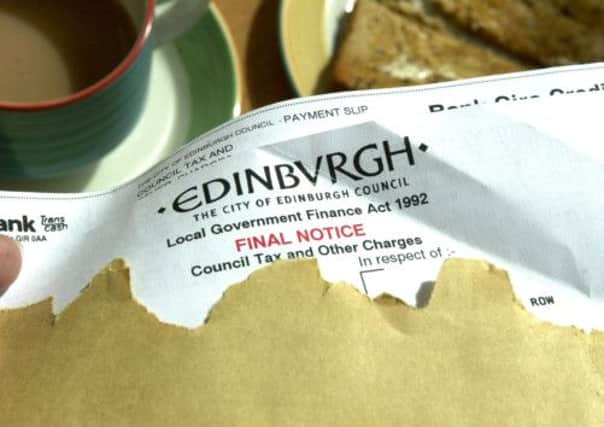Council tax freeze ‘pushing up parking charges’


Research by Scotland’s public spending watchdog, the Accounts Commission, has found that the amount charged for services now stands at more than £1.3 billion per year, compared with £1.1bn in 2006-7.
The rise in charges has been accompanied by a fall in council tax income from £2.5bn to £2.3bn over the period, which covers the introduction of the SNP’s council tax freeze in 2007.
Advertisement
Hide AdAdvertisement
Hide AdThe rising charges led to claims from Labour that the council tax freeze was putting a “huge burden” on local authorities, who were having to decide which front-line services to cut.
Scottish Government funding to local authorities has fallen by about 2.2 per cent this year and councils are predicting “increasing funding gaps”, according to the Commission.
Since 2003, the amount raised through charges has risen from the equivalent of 40 per cent of council tax revenue to 57 per cent.
In its report published today, the Accounts Commission calls for greater transparency in fees for those services not paid for by taxation.
The majority of fees are taken from social work clients, particularly elderly users of services such as home care, meals on wheels and emergency alarms.
Social work accounts for a quarter of fee income and demand for services is set to rise, with the number of over-75s set to double in the next 20 years.
Across Scotland, the report found that there was variation in the amount charged by local authorities for services.
For example, the cost of home care varied from £8.56 per hour to £22.70 per hour. The cheapest adult gym membership was £15 per month, compared with the most expensive rate of £49 per month. The cost of adult day care varied from free to £34.98 per day.
Advertisement
Hide AdAdvertisement
Hide AdAccounts Commission chair John Baillie said: “These are financially tough times for councils and the public alike. It is important that councils have the ability to set appropriate charges for the services they provide, but people also want to know exactly what they are paying for and that the charge is fair.”
Labour’s local government spokeswoman Sarah Boyack said the Scottish Government should find fairer funding for local government, because the current system was penalising those in most need of services.
“This report confirms that the SNP’s underfunded council tax freeze has broken local government finance,” Ms Boyack said. “Coupled with cuts to local authority grants, the freeze has placed a huge burden on councils, who have to make increasingly difficult decisions on which front-line services to cut.”
A Scottish Government spokeswoman said: “We are delivering a council tax freeze which will have saved the average household in Scotland around £1,200 by the end of this parliament.
“Decisions on how much to charge for local services are for councils, not the Scottish Government, to take.”
Warning over ‘significant’ cuts to local authorities’ services
A SCOTTISH councils leader has warned that some authorities will have to cut back services to “very limited levels”.
Elma Murray, chairwoman of the Society of Local Authority Chief Executives (Solace), said that although Scotland’s 32 councils have sought to provide services in more “imaginative” and “creative” ways, the “significant levels of savings” they are forced to make in the coming years will lead to cuts.
Advertisement
Hide AdAdvertisement
Hide AdMs Murray, who is also chief executive of North Ayrshire Council, was giving evidence yesterday to Holyrood’s local government committee.
Labour MSP Richard Baker said a 4.8 per cent resource budget cut and the continuing council tax freeze meant that reductions in services and increases in charges would be “inevitable”.
Ms Murray, when asked about funding non-statutory services from reduced budgets, said: “My sense is that that is becoming increasingly difficult right now.
“I do think there are some things that we will have to stop or reduce to a very, very limited level.”
She said an example of this was that it would become increasingly difficult for councils to maintain funding for community centres.